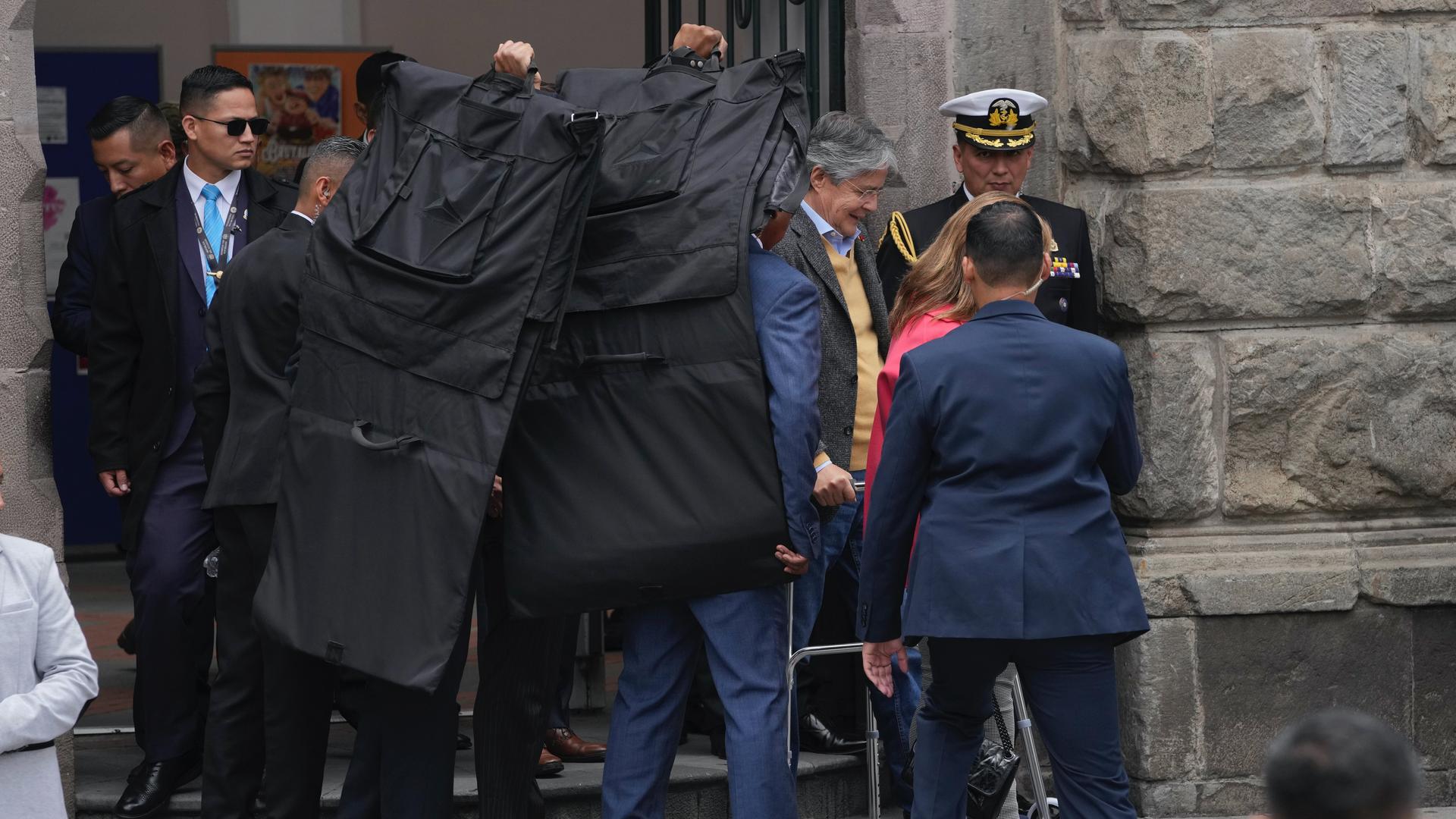Ecuadorian President Guillermo Lasso is facing the political battle of his life.
After Ecuador’s top court authorized an impeachment trial against him for acts of corruption last week, the proceedings began on Monday.
Lasso is a conservative, former banker who won office in 2021 and is nearly halfway through his term.
He’s accused of allowing embezzlement to continue under his watch in Ecuador’s oil shipping company, Flopec. According to evidence, he was advised of the corruption even before taking the presidency, but did not move to stop it. This is one of several accusations against him, including bribery and abuse of power.
The Ecuadorian outlet La Posta has recently accused Lasso’s brother-in-law and business associate Danilo Carrera of being at the center of a web of corruption, including involvement in false energy contracts and a cash-for-appointment bribery scheme.
However, the embezzlement charge was the only one approved by the Constitutional Court to be considered for the National Assembly’s impeachment proceedings.
“I am innocent,” Lasso said during a televised address to the nation the day after the court ruling. “In my personal, professional and public life, I have always acted with clear intention. And that’s why I denounce this impeachment trial, which smells very bad.”
He accused the National Assembly of trying to remove him in a bid for power.
But Ismael Quintana, a lawyer and professor of constitutional rights, said that Lasso and those who defend his government “haven’t ever sufficiently responded to the facts.”
“They are serious, and they implicate the president in political responsibility in this and other cases of corruption,” he said.
For Lasso to be impeached, two-thirds of the 137-member opposition-controlled National Assembly must vote in favor. The decision is due in one month. The president of the special impeachment commission, Viviana Veloz, said they have more than enough votes.
“The majority of the caucuses and the legislators have said that they will vote to proceed with censoring and removing President Lasso,” she told the Ecuadorian talk show, EnClave Política.
“And with the eight independent lawmakers, we have 104 votes.”
They will need support from 92 National Assembly members to impeach.
But Lasso is looking to shore up his support ahead of the vote.
Over the weekend, he authorized the civilian use of guns in self-defense. In a televised address, Lasso said the decree expands current gun laws and allows civilians to openly carry in public.
“Ecuadorians, we have a common enemy: crime, drug trafficking, and organized crime. We are going to fight it with these new urgent measures.”
Homicides have spiked to historic levels in Ecuador over the last year. Meanwhile, Lasso’s approval has plummeted to less than 13%, according to recent polls.
In February, he lost a referendum package, and his allies were trounced in regional elections.
Meanwhile, Ecuador’s powerful Indigenous movements have been gaining political ground. And they’ve been a vocal opposition to Lasso’s government.
Last week, they marched to demand that the Constitutional Court authorize the National Assembly to proceed with the impeachment trial.
“We are demanding that the judicial laws be carried out,” said Floresmilo Simbaña, a former leader of the country’s largest Indigenous confederation CONAIE. “There are indications of irregularities in Lasso’s administration. According to the evidence, Lasso is clearly implicated in these acts of corruption and therefore, must be removed.”
The National Assembly has 30 days to reject or approve Lasso’s impeachment. If he is removed, his vice president, Alfredo Borrero, would take over. He’s a former neurosurgeon and a political novice.
Lasso may also try to implement what Ecuador’s Constitution calls a “cross death” that would dissolve both the National Assembly and his presidency, and call for new elections.
The future is uncertain. But Lasso is now hanging on for his political life.
